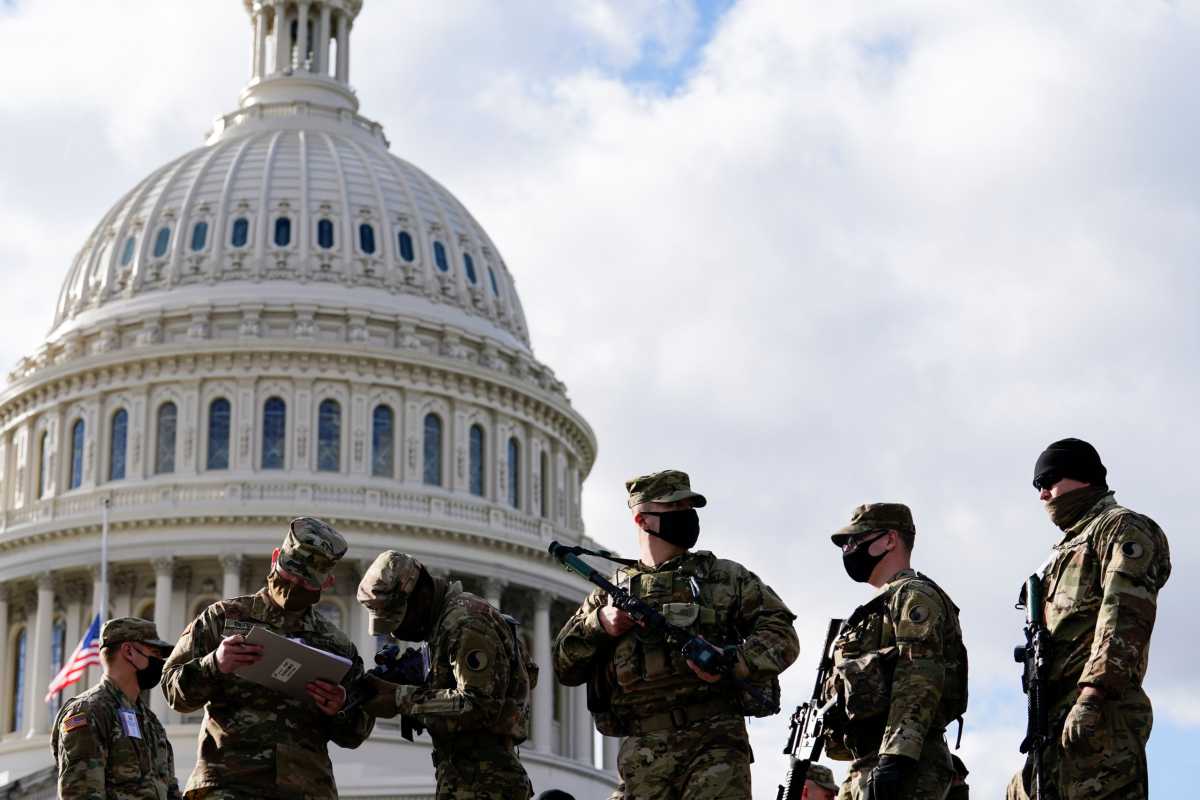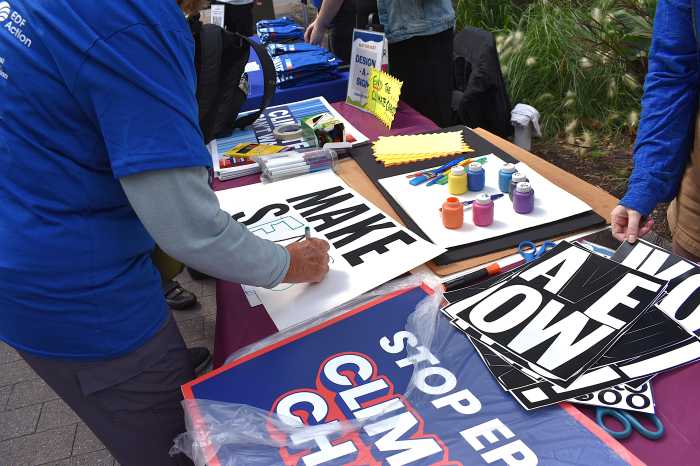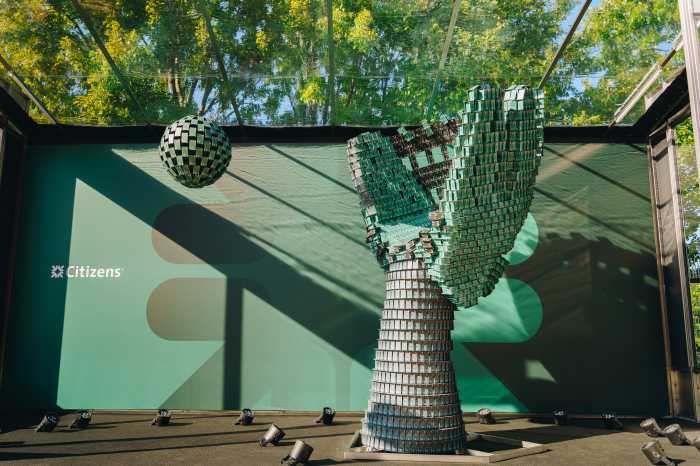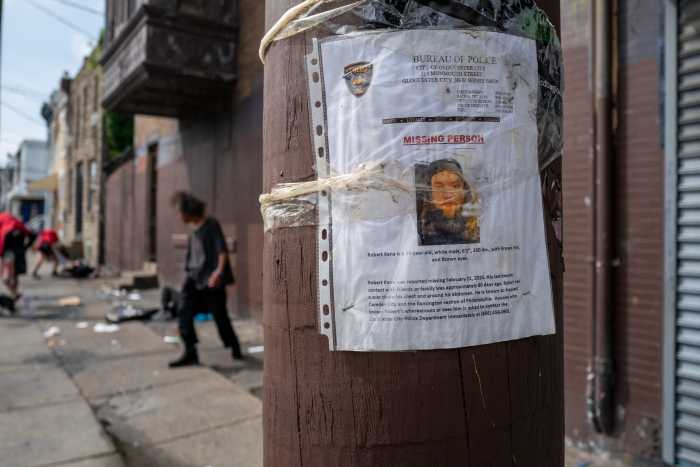By Nathan Layne and Brendan O’Brien
A heavy presence of law enforcement officers guarded state capitol grounds across the United States on Sunday in preparation for protests that so far have drawn only a small number of Trump supporters who believe the president’s false claim that the 2020 election was rigged.
More than a dozen states have activated National Guard troops to help secure their capitol buildings following an FBI warning of armed demonstrations, with right-wing extremists emboldened by the deadly attack on the U.S. Capitol in Washington on Jan. 6.
Security officials had eyed Sunday as the first major flashpoint, as that is when the anti-government “boogaloo” movement made plans weeks ago to hold rallies in all 50 states.
Capitals in battleground states, where Trump has directed his accusations of voter fraud, were on especially high alert.
But by the afternoon, only handfuls of demonstrators had taken to the streets alongside much larger crowds of law enforcement officers and media personnel.
About a hundred police officers and National Guardsmen, wearing helmets and armed with wooden batons, were assigned to protect Pennsylvania’s capitol in Harrisburg on Sunday. Only a handful of Trump supporters showed up, including Alex, a 34-year-old drywall finisher from Hershey, Pennsylvania who said he had been at the Jan. 6 siege of the U.S. Capitol but did not storm the building. He declined to give his last name.
Wearing a hoodie emblazoned with “Fraud 2020,” he said he believed November’s presidential election was stolen and wanted to show his support for Trump. He noted the lack of protesters at the Pennsylvania capitol on Sunday.
“There’s nothing going on,” he said.
On Sunday afternoon, police opened streets around the building that had been blocked off in anticipation of bigger crowds.
A similarly small group of about a dozen protesters, a few armed with rifles, stood outside Michigan’s capitol in Lansing. One wore fatigue pants, a tactical vest and blue Hawaiian shirt, a trademark of the anti-government boogaloo movement.
“I am not here to be violent and I hope no one shows up to be violent,” said one man standing on the lawn in front of the capitol. The man, who refused to give his name, wore a “Make America Great Again” hat and waving a “Don’t tread on me” flag.
In Atlanta, several hundred law enforcement officers and National Guard troops milled around Georgia’s state house. Chain-link fences and cement barriers protected the Capitol grounds and multiple armored vehicles were stationed nearby.
In addition to increasing police presence, some states, including Pennsylvania, Texas and Kentucky, took the further step of closing their capitol grounds to the public.
The nationwide security uptick followed the attack on the U.S. Capitol in Washington by a mix of extremists and Trump supporters, some of whom called for the death of Vice President Mike Pence as he presided over the certification of Democrat Joe Biden’s election victory.
The FBI and other federal agencies have warned of the potential for future violence leading up to Biden’s inauguration on Wednesday, as white supremacists and other extremists seek to exploit frustration among Trump supporters who have bought into his falsehoods about electoral fraud.
Tens of thousands of security personnel from the National Guard and law enforcement agencies have descended upon Washington, D.C., to bolster security ahead of Wednesday’s ceremony.
Downtown Washington was largely a ghost town on Sunday. Gun-toting National Guard soldiers in camouflage manned checkpoints across the city center, which was closed off to traffic with large military vehicles deployed to block streets.
It was not clear whether the FBI warning and ramped up security presence around the country might have led some protesters to cancel plans to go to their state capitols.
Following the Jan. 6 violence in Washington, some militia members said they would not attend a long-planned pro-gun demonstration in Virginia on Monday, where authorities were worried about the risk of violence as multiple groups converged on the state capital, Richmond.
The streets around the statehouse in Richmond were lined with barricades on Sunday afternoon, but aside from a few clusters of police officers and reporters, the area was deserted.
Some militias and extremist groups have told followers to stay home this weekend, citing the increased security or the risk that the planned events were law enforcement traps.
Bob Gardner, leader of the Pennsylvania Lightfoot Militia, said his group had no plans to be in Harrisburg this weekend, where the Capitol has been fortified with barricades and will be protected by hundreds of members of its National Guard.
“We’ve got our own communities to worry about,” Gardner said earlier this week. “We don’t get involved in politics.”
Reuters




























